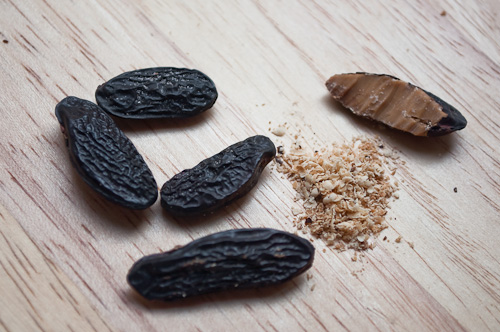Introduction: Ashwagandha, also known as Indian ginseng or Winter cherry, is a revered herb in Ayurveda, one of the world’s oldest holistic healing systems. As a professional herbalist, I have compiled this comprehensive Materia Medica to provide a detailed understanding of Ashwagandha’s medicinal properties, uses, dosages, and potential side effects.
Botanical Classification:
- Family: Solanaceae
- Genus: Withania
- Species: Withania somnifera
Part Used: The root of the Ashwagandha plant is primarily used for medicinal purposes, although some traditional preparations also include leaves and berries.
Constituents: Ashwagandha root contains a variety of bioactive compounds, including:
- Withanolides: The primary active compounds responsible for Ashwagandha’s medicinal properties.
- Alkaloids: Including somniferine and anaferine.
- Steroidal lactones.
- Flavonoids.
- Tannins.
- Amino acids.
- Vitamins and minerals.
Medicinal Properties: Ashwagandha possesses a wide range of therapeutic properties, including:
- Adaptogenic: Helps the body adapt to stress and maintain balance.
- Anxiolytic: Reduces anxiety and promotes relaxation.
- Immunomodulatory: Supports the immune system.
- Anti-inflammatory: Reduces inflammation in the body.
- Antioxidant: Scavenges free radicals and reduces oxidative stress.
- Anti-fatigue: Increases stamina and reduces fatigue.
- Aphrodisiac: Enhances sexual vitality and fertility.
- Neuroprotective: Supports cognitive function and may protect against neurodegenerative diseases.
- Hypotensive: May lower blood pressure.
- Antidepressant: May help alleviate symptoms of depression.
Traditional Uses: Ashwagandha has been used in traditional Ayurvedic medicine for various purposes, including:
- Improving physical and mental stamina.
- Enhancing memory and cognitive function.
- Reducing stress and anxiety.
- Supporting the treatment of insomnia.
- Managing autoimmune disorders.
- Enhancing fertility and sexual health.
- Boosting overall vitality and longevity.
Modern Clinical Applications: Modern research supports many traditional uses of Ashwagandha, and it has shown promise in various clinical applications, such as:
- Reducing stress and anxiety.
- Improving sleep quality.
- Enhancing athletic performance and muscle strength.
- Supporting individuals with adrenal fatigue.
- Managing symptoms of arthritis and inflammation.
- Supporting cancer patients undergoing chemotherapy.
- Improving markers of cardiovascular health.
- Aiding in the management of diabetes.
- Enhancing male reproductive health and testosterone levels.
Dosage and Preparation: Ashwagandha is available in various forms, including:
- Powder: Typically taken in doses of 1-2 grams daily.
- Capsules: Usually containing 300-500 mg of standardized extract.
- Tinctures: Taken at a dosage of 2-4 mL daily.
- Tea: Made by steeping Ashwagandha root in hot water.
Dosages may vary depending on the specific health concern and individual tolerance. It is essential to consult with a qualified healthcare practitioner or herbalist for personalized dosing recommendations.
Potential Side Effects and Contraindications: Ashwagandha is generally well-tolerated when used within recommended dosages. However, some individuals may experience mild side effects, such as stomach upset or diarrhea. It is not recommended for use during pregnancy and breastfeeding without consulting a healthcare provider. People with autoimmune diseases, such as rheumatoid arthritis or lupus, should use caution when using Ashwagandha, as it may stimulate the immune system.
Drug Interactions: Ashwagandha may interact with certain medications, such as immunosuppressants, thyroid medications, and sedatives. Consult with a healthcare provider before using Ashwagandha if you are taking prescription medications.
Conclusion: Ashwagandha is a versatile herb with a long history of traditional use and growing scientific support. As a professional herbalist, I recommend its use for a wide range of health concerns, always with careful consideration of individual needs and potential interactions. Always consult with a qualified herbalist or healthcare practitioner for personalized guidance on using Ashwagandha for specific health concerns. This Materia Medica serves as a general reference and should not replace professional advice.






One comment on “Ashwagandha: Herbal Plant Profile”